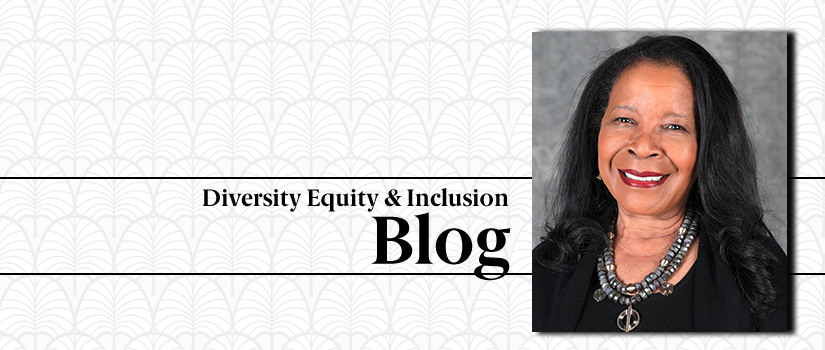Posted June 3, 2020
By Dr. Shirley Staples Carter
Welcome to my inaugural blog, and how prescient that the most recent events of the past few weeks is the main focus.
On that note, we are so thankful for the encouraging remarks and sentiments shared by the university and college the past few days in response to yet another crisis, racial injustice in our society. Like you, I have thought about this from many different angles, not the least of which has been what can I do as a professor?
Yesterday, the head of the PR division in AEJMC sent a powerful message to members. I contacted Dr. Dustin Supa, senior associate dean of the College of Communications at Boston University, to ask for his permission to share with our CIC faculty. I want to share with you the following excerpt from his message:
"I hope you are all well, staying safe, and have had a successful end to what was likely the most challenging semester of your academic, and professional, careers. My purpose in writing today is to address the news that impacts all of us — the continued racial injustices which continue to plague our society, again brought to the forefront of our collective awareness by George Floyd’s death and the deaths of Louisville EMT Breonna Taylor and Georgia resident Ahmaud Arbery.
"These incidents add to the long series of actions and inactions, which have stoked the flames of mistrust experienced by our communities of color - particularly as these events are occurring while we continue to battle the COVID-19 pandemic, which has exposed the inequalities within our healthcare system that includes access and the disproportionate infection and death rates amongst these communities. But where the battle against the COVID-19 virus begins to lean in our favor, the virus of racism and marginalization has put our entire nation, and world, on life support.
"As public relations scholars, students, and practitioners we can immediately do three things:
- Listen - to the concerns of our students, our colleagues, and our friends. One of our key responsibilities is to serve as educators, not just to teach concepts within our field, but to help build a better society.
- Practice informed compassion — Speaking for myself, I’ve the ability to sympathize, but I cannot empathize. I’ve never been in a situation where I was met with suspicion, perceived to lack credibility, or marginalized because of the color of my skin. And try as I might, I’ll never know what those situations are like. But what I can do, and what all of us can do, is act.
- Act - through our thoughts, our words, and our behaviors. We cannot be bystanders, even compassionate and listening ones. Nor can we solely ‘perform’ by posting on social media for our own groups to recognize that we are doing ‘something.’ Our actions as both educators and citizens must be concerted and thoughtful.
"In the words of former President Obama, 'We can channel our justifiable anger into peaceful, sustained and effective action ....' We have an opportunity, and an obligation, to personify that sustained action, long after the initial shock and anger has subsided. We can do this overtly by working with our students, all of our students, to be compassionate actors for a better society. We can rethink our curricula, our case studies, our approaches to instruction, and our scholarship. We can recognize our limitations, and seek to overcome them. And we can advocate — echoing those voices which have been pushed to the margins while simultaneously amplifying and making space for that advocacy to be heard. These actions are both our professional responsibility as educators and scholars, and for many of us, a personal responsibility to our friends and families.”
So in answer to the question many of us are asking, “What can I do?” What our friend Dustin said.
In the coming days I will share more carefully scrutinized and screened comments and resources related to our teaching, research and service mission, as well as how we in the university and college will continue to provide relevant DEI initiatives, albeit on a limited basis during the fall and spring semesters. We’ve gained a lot of momentum the past few years with our multifaceted DEI programming that extends beyond mere events, but rather indicates our deep commitment to achieving two major goals — ensuring that all faculty, staff and students can thrive and flourish in this environment, and valuing and validating the contributions of all.
